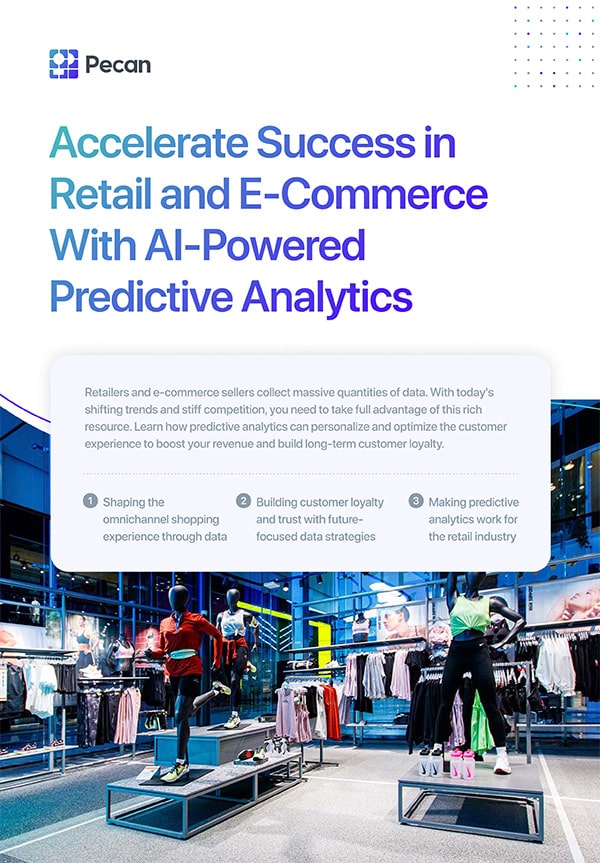Retailers and e-commerce sellers collect data in massive quantities. With today’s shifting trends and stiff competition, businesses must take full advantage of this rich resource through predictive analytics for retail and e-commerce.
Worldwide retail sales are estimated to grow 5% YoY in 2022 and will likely exceed $27.33 trillion. Consumers have returned to shopping at brick-and-mortar stores again, and online retail and e-commerce growth is likely to slow. Yet more than 20% of global retail sales will still happen through e-commerce outlets.
Across these channels, today’s customer expects a seamless shopping experience. Whether in-store, on the web, on mobile, or elsewhere, customers want a consistent experience that provides both personalization and convenience.

Analyzing your customer data and purchase history might have seemed sufficient in the past. But in today’s fast-changing environment, retailers and e-commerce sellers need to get ahead of shifting trends. Historical data no longer provides a reliable guide.
Businesses must plan proactively for what customers will do in the future. Anticipating customers’ needs allows you to provide customers with the relevant products and services they want — when, where, and how they want them.
In addition, retailers and e-commerce companies need to prepare for consumers’ changing attitudes toward privacy, data sharing, and trust. Planning better ways to use your company’s first-party data with machine learning is critical as the privacy ecosystem changes.
In this whitepaper, we discuss significant trends in the retail business and in e-commerce that are shaping how marketers can best use their data. We examine changes in customer attitudes and how predictive analytics for e-commerce and retail can anticipate and personalize the customer journey. We’ll also dive into details on six predictive strategies, with examples of how businesses benefit from these strategies:
- Lead scoring
- Likelihood to opt-in or subscribe
- Conversion optimization
- Customer lifetime value and VIP identification
- Customer churn and retention
- Customer upsell and cross-sell


